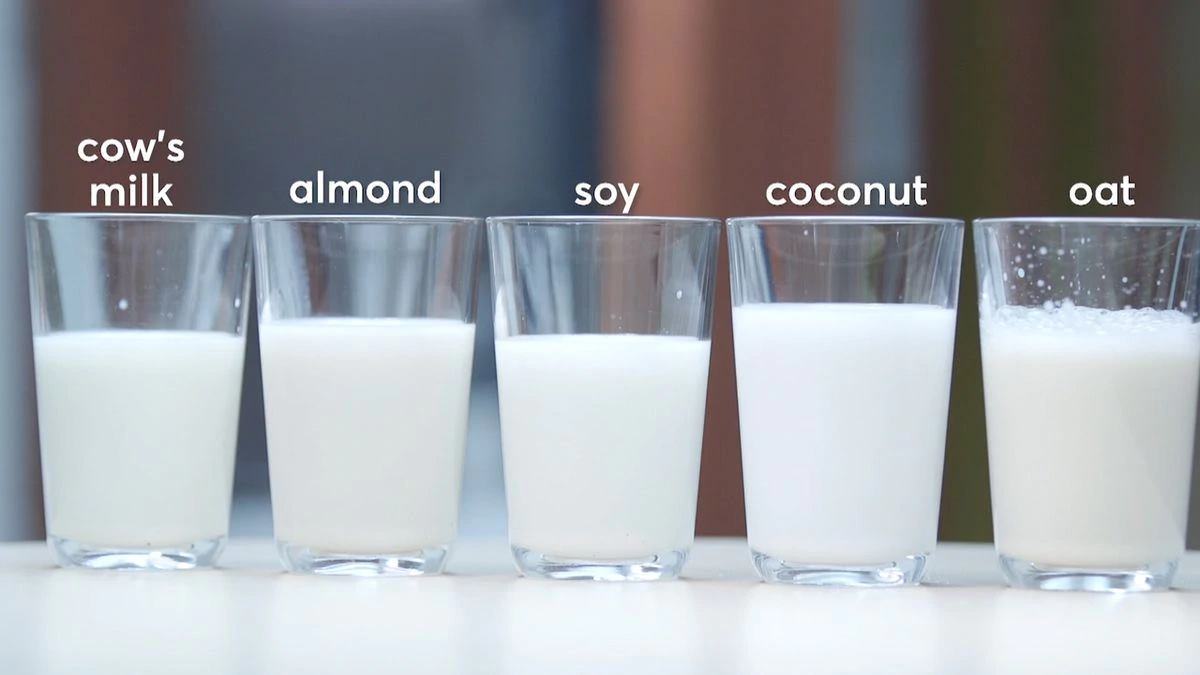Dairy-free milk has become extremely popular with vegans and omnivores alike, thanks to a growing interest in plant-based foods and alternatives. Dairy-alternative milks tend to have fewer calories, less fat, more water content for better hydration, and less protein (except Soy). Some are fortified with other vitamins and nutrients. Here are some great alternatives to dairy milk and the key factors that determine their compatibility with coffee.

1. Oat Milk
Oat milk has become one of the most popular dairy-free milks to use in coffee drinks. It's made from a combination of oats, water, and sometimes canola oil or rapeseed oil for emulsification. The result is surprisingly full-bodied dairy-free milk with a richness that rivals whole dairy milk.
Oat milk has a creamy taste that is similar to full-fat dairy milk in coffee. It has a smooth texture that blends easily, which explains why it is growing in popularity so rapidly.
2. Coconut Milk
Coconut milk has a thick and creamy texture and is quickly becoming a favorite dairy alternative for coffee drinkers. Coconut milk has a high fat content that plays well in coffee drinks, and many brands have a neutral taste with only a hint of coconut flavor. Canned coconut milk is much thicker and has a stronger coconut taste. Many assume that coconut milk has a strong, sweet flavor that only belongs in a tropical fruit drink. Coconut milk actually has a more subtle coconut flavor than other coconut products like shredded coconut. In coffee drinks that contain syrups or other flavorings, the light coconut taste is masked.
3. Soy Milk
Soy milk has been a popular option for many years. Soy milk has a smooth, creamy texture with a relatively neutral taste. Many brands do not leave any noticeable aftertaste. Of all the plant milks, soy milk is the most nutritionally similar to a low-fat cow’s milk.
4. Almond Milk
Almond milk is one of the most popular nut milks in the dairy-free market. It comes in several flavors, and many manufacturers produce both sweetened and unsweetened varieties. Almond milk has a nutty flavor and is naturally high in vitamin E, a disease-fighting antioxidant. During processing, it’s commonly fortified with calcium and vitamin D. However, it’s not a good source of protein.

Other posts you may enjoy






